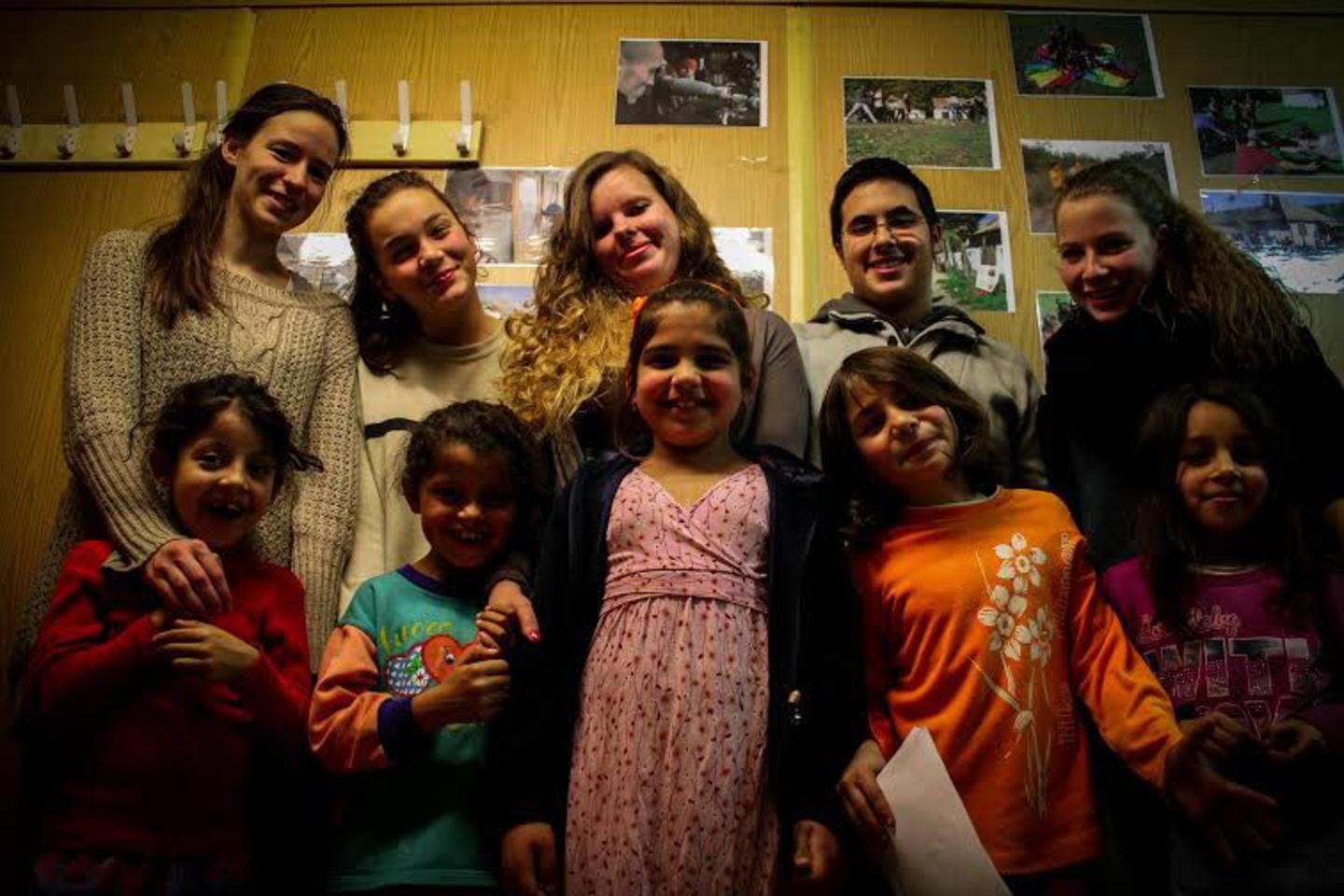The majority of the school children in the Roma settlement in Bag struggles with behavioural and learning difficulties. The settlement – a community of around 500 Roma living in extremely poor conditions in a segregated area – provides few positive role models and stimulating recreational programmes for local children. This has negative consequences for the children’s school performance and their possibilities for the future as they miss a valuable opportunity to develop their cognitive and social skills outside of the classroom.
Noting the issue, the Bagázs Association developed the ‘BAGázs School Community Service’ project with the support of Iceland, Liechtenstein and Norway through the Hungarian NGO programme. The project aimed to strengthen the school performance of Roma children and decrease discrimination by implementing an after-school programme in the settlement where children could develop their skills through constructive extracurricular activities.
Role models
The project was carried out by members of the Bagázs Association in Bag and Budapest, along with university students, who were given the role of supporters, and volunteers recruited amongst high school students in Budapest. In teams of one supporter and 2 - 3 volunteers, they held weekly one-hour sessions for groups of 5 - 6 children each over a period of ten weeks.
During these sessions the children participated in various games and activities specifically aimed at developing skills such as speaking, concentration and cooperation. Over the project period, the teams engaged a total of 60 children between the ages of 5 and 13.
The project organisers hoped that by introducing the children to high school students, the children would gain more than just new skills. “The tutoring offered the children a chance to form friendships with the high school students from middle class and upper-middle class background, which may have a positive effect on their later lives,” says Jámbor, emphasising the part positive role models play in the implementation of the project.
Appreciated activities
The initiative was well received in the community. Most of the parents were satisfied with the project as they recognise the importance of educational advancement for their children’s future.
“They noticed that in contrast to most of the school activities, the children loved to attend these sessions”, Jámbor notes, adding that the regular weekly sessions brought structure into the children’s life, with many of them showing up on time on their own after a few sessions.
The teachers likewise had a positive reaction. “The teachers were satisfied with the fact that the children were provided with an alternative opportunity for afternoon activities and that they were, for the first time, enthusiastic about something related to learning and school activities,” says Jámbor.
A working relationship with the local elementary school was also developed as a part of the project. With the facilitation of BAGázs’ local coordinators, a dialogue was established between the parents and the teachers, which strengthened relations between the two groups and helped with resolving many long standing differences.
Increasing social awareness
The project was not only set out to assist the children of the settlement – another goal was to give the volunteers an enriching experience as well. Every two weeks, the volunteers met with their supporters to discuss their experiences and the issues they had come across in their work. “The students reported that they experienced many things first-hand that made them more appreciative of the opportunities that they have,” Jámbor explains, “a number of them felt that they have become more empathetic and socially aware and many had to deal with situations they previously would not have considered themselves capable of handling.”
Quality through support
Jámbor notes that the backing of the EEA Grants has been essential for achieving the desired quality in the project implementation, “we would have been unable to ensure the essential tools and resources for the programme without the financial support. It also allowed us to offer remuneration for the programme coordinators working in Budapest and Bag, which helped to maintain a higher level of motivation, commitment and professionalism overall.”
Iceland, Liechtenstein and Norway contributed € 5 945 to this project.
